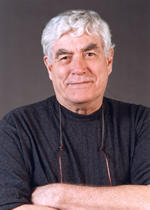
Born in Shreveport, Louisiana, Bill Pirkle grew up on a farm, and built model airplanes to fly them competitively even into later years after he had started his career in science. Bill received his B.S. from the University of California at Berkeley in 1958, and his Ph.D. from the University of Rochester (Marshall Gates) in 1963. After a postdoctoral year with E. J. Corey at Harvard, he joined the faculty at Illinois in 1964.
His research was in the areas of organic chemistry and analytical chemistry, particularly in molecular recognition and enantiomer separation using chiral stationary phases (CSPs). The work was originally inspired by Pirkle's demonstration that enantiomers could be distinguished by NMR spectroscopy in the presence of chiral solvating agents. Pirkle's alcohol, an anthracene derivative of trifluoroethanol, is perhaps one of the most famous chiral shift reagent in nuclear magnetic resonance spectroscopy, and can be used to determine the absolute configuration and the enantiomeric purity of chiral molecules.
Among many other awards, Pirkle was the recipient of the American Chemical Society's Award in Separations Science and Technology in 2004. Bill's final papers on chiral stationary phases came out not too long ago, in 2011 and 2016. He was not a flashy chemist, but his work had a deep impact on stereochemistry. Few scientists in the industrial and academic communities realize that what is now routine on analytical as well as manufacturing scales has its foundations on Bill Pirkle’s legacy. Bioanalytical chemistry and resolution of chiral drugs owe Bill a great debt. The vernacular for a chiral stationary phase chromatography column remains a "Pirkle column," and colleagues and alumni fondly remember the "Pirkle-ator" solvent stills in RAL, and how he was always available for late-night mentorship with his big mug of tea in hand.